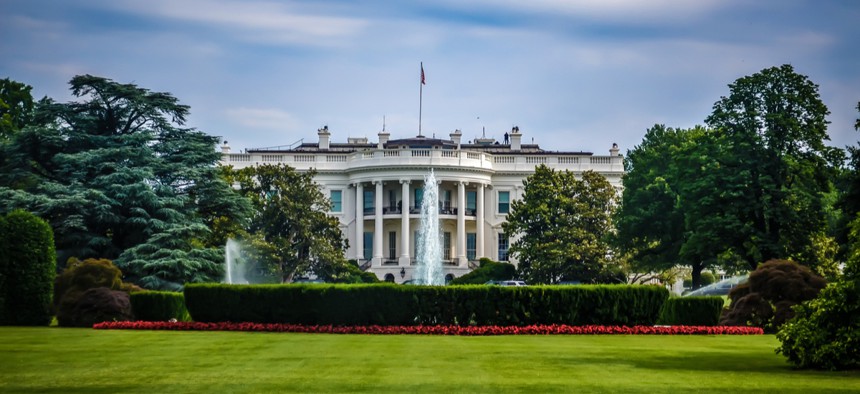White House Requests More Than $17.4 Billion for Federal Cyber Efforts

Hakim atar/Shutterstock.com
Under the president’s 2020 budget proposal, the Pentagon’s cyber coffers would grow while funds for some civilian agencies dry up.
The Trump administration intends to allocate more than $17.4 billion to cybersecurity efforts across federal agencies in fiscal 2020, with the Pentagon and Homeland Security Department receiving the lion’s share of the funds.
The White House on Monday published a breakdown of the president’s 2020 budget request, building on the broad spending outline officials released last week. The administration said it opted to exclude some funds from the release, citing “the sensitive nature of some operations.”
While the proposal would increase overall federal spending on cybersecurity by about $790 million from 2019, funding for cyber programs at civilian agencies dropped about $120 million.
Under the president’s request, the Defense Department would receive some $9.6 billion—roughly 55 percent of the government’s total cyber spend—to bolster its digital defenses and expand offensive operations in cyberspace. The figure marked a $1 billion increase from administration’s 2019 request and came as one of the proposal’s most significant provisions. The administration didn’t include specifics on the Pentagon’s cyber budget in its release.
The proposal would also allocate more than $1.9 billion to the Homeland Security Department, with more than half getting funneled to the Cybersecurity and Infrastructure Security Agency. The funds would allow the agency to increase the number of network risk assessments it conducts and support programs to protect the government’s IT infrastructure.
While CISA, Customs and Border Protection and the Federal Emergency Management Agency would see substantial increases to their cyber budgets, the agency’s primary research wing, the Science and Technology Directorate, would lose almost three-quarters of its cyber funding. The move is another blow for the directorate, which has faced sizable budget cuts since the start of the Trump administration.
Other winners under the president’s proposal include the FBI, State Department and Federal Aviation Administration, which would each receive between an eight and 10 percent boost in cyber budgets. The Food and Drug Administration would also see cyber appropriations grow nearly 70 percent.
The proposal also allocates an extra $37 million to the Energy Department’s cyber efforts and requests $156 million to stand up a new research office within the agency dedicated to securing the country’s critical infrastructure.
However, some civilian agencies weren’t as lucky.
Under the president’s request, the Housing and Urban Development Department would see its meager cyber funding drop from $35 million to $25 million, and the Agriculture Department’s cyber budget would plummet from $480 million to $310 million. The proposal also cuts Centers for Disease Control’s cyber funds by about 30 percent, and the Census Bureau would lose about 20 percent of its cyber appropriations in the run-up to the tech-heavy 2020 decennial.
NEXT STORY: DHS supply chain task force tees up plans






